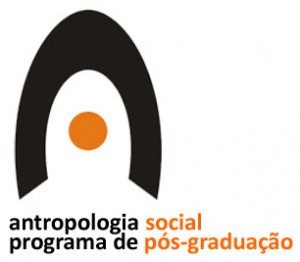A Matéria do Parentesco
DOI:
https://doi.org/10.52426/rau.v6i2.125Palavras-chave:
Parentesco, substância, sangueResumo
Assumindo como ponto de partida o ensaio recente de Marshall Sahlins, What kinship is - andis not (2013), este artigo propõe uma série de reflexões sobre o momento atual do estudo antropológico do parentesco. A definição de Sahlins do parentesco como “mutualidade do ser” é ampla e inclusiva. Ao invés de focar no que é ou não o parentesco, me afasto da dicotomia englobante do “biológico” e do “social”. Ao contrário, uso sua discussão, assim como escritos sobre parentesco de outros acadêmicos, para ir além e pensar sobre “espessamento” e “diluição” do parentesco, sobre como ele é feito e dissolvido ao longo do tempo, sobre gradações de parentesco e sobre diferentes substâncias e metáforas por meio das quais esses processos ocorrem. Partindo de uma pesquisa de campo recente sobre sangue, assim como de minhas pesquisas anteriores, amplio as maneiras em que temporalidade e substância são mutuamente entrelaçadas, sugerindo que elas são intrinsicamente incorporadas no parentesco e nas capacidades que ele evoca.
Referências
BAHLOUL, Joelle. 1996. The architecture of memory: a Jewish-Muslim household in colonial Algeria, 1937-1962. Cambridge: Cambridge University Press.
BAMFORD, Sandra. 2004. “Conceiving relatedness: non-substantial relations among the Kamea of Papua New Guinez”. Journal ofthe Royal Anthropoogical Institute, 10(2):287-306. http://dx.doi.org/10.1111/j.1467-9655.2004.00190.x
BAMFORD, Sandra. 2007 Biology unmoored: Melanesian reflections on life and biotechnology. Berkeley: University of California Press.
BAMFORD, Sandra. 2009 “Family trees among the Kamea of Papua New Guinea: a non-genealogical approach to imagining relatedness. In: S. Bamford & J. Leach (eds.), Kinship and beyond: a genealogical model reconsidered. New York/Oxford: Berghahn Books. pp. 159-174.
BLOCH, Maurice. 2005. “Commensality and poisoning” In: » Essays on cultural transmission. Oxford: Berg. pp. 45-59.
BYNUM, Caroline W. 2007. Wonderful blood: theology and practice in late medieval Northern Germany and Beyond. Philadelphia: University of Pennsylvania Press.
CARSTEN, Janet. 1995. “The substance of kinship and the heat of the hearth: feeding, personhood and relatedness among Malays of Pulau Langkawi". American Ethnologist, 22(2):223-241. http://dx.doi.org/10.1525/ae.1995.22.2.02a00010
CARSTEN, Janet. 1997. The heat of the hearth: the process of kinship in a Malay fishing community. Oxford: Clarendon Press.
« 2000. “Introduction: cultures of relatedness” In: J. Carsten (ed.), Cultures of relatedness: new approaches to the study of kinship. Cambridge: Cambridge University Press. pp. 1-36.
CARSTEN, Janet. 2004. After Kinship. Cambridge: Cambridge University Press.
CARSTEN, Janet. 2011. “Substance and relationality: blood in contexts”. Annual Review of Anthropology, 40:19-35. http://dx.doi.org/10.1146/annurev.anthro.012809.105000
CARSTEN, Janet. 2013a. “Searching for the truth': tracing the moral properties of blood in Malaysian clinical pathology labs”. Journal of the Royal Anthropological Institute (N.S.), 19(S1):S130-S148.
CARSTEN, Janet (ed.). 2013b. Blood will out: essays on liquid transfers and flows. Chichester: Wiley-Blackwell.
COPEMAN, Jacob. 2013. “The art of bleeding: memory, martyrdom, and poertraits in blood”. Journal of the Royal Anthropological Institute (N.S.), 19(S1):S149-S171.
DA COL, Giovanni. 2013. “The poisoner and the parasite: Cosmoeconomics, fear, and hospitality among Dechen Tibetans”. Journal of the Royal Anthropological Institute (N.S.), 18(S1):S175-S195.
DAS, Veena. 1995. “National honour and practical kinship: Unwanted women and children”. In: F. D. Ginsburg & R. Rapp (eds.), Conceiving the new world order: the global politics of reproduction. Berkeley: University of California Press. pp. 212-233.
EDWARDS, Jeanette; STRATHERN, Marilyn. 2000. “Including our own". In: J. Carsten (ed.), Cultures of relatedness: new approaches to the study of kinship. Cambridge: Cambridge University Press. pp. 149-166.
FAUBION, James (ed.). 2001. The ethics of kinship: ethnographic enquiries. Lanham: Rowman & Littlefield.
FORTES, Meyer. 1969. Kinship and the social order. London: Routledge & Kegan Paul.
FOSTER, Robert ]. 1990. “Nurture and force-feeding: mortuary feasting and the construction f collective individuals in a New Ireland society". American Ethnologist, 17(3):431-448. http://dx.doi.org/10.1525/ae.1990.17.3.02a00020
GOW, Peter. 1991. Of mixed blood: kinship and history in Peruvian Amazonia. Oxford: Oxford University Press.
KEANE, Webb. 1997. Signs of recognition: powers and hazards of representation in an Indonesian Society. Berkely: University of California Press.
KEANE, Webb . 2003.“Semiotics and the social analysis of material things”. Language & Communication, 23(3-4):409-425. http://dx.doi.org/10.1016/S0271-5309(03)00010-7
LAMBEK, Michael. 2011. “Kinship as gift and theft: acts of succession in Mayotte and ancient Israel”. American Ethnologist, 38(1):2-16. http://dx.doi.org/10.1111/j1548-1425.2010.01288.x
MARTIN, Emily. 2013. “Blood and the Brain”. Journal of the Royal Anthropological Institute (N.S.), 19(S1):S172-S184.
MAYBLIN, Maya. 2013. “The Way Blood Flows: the sacrificial value of intravenous drip use in Northeast Brazil”. Journal of the Royal Anthropological Institute (N.S.), 19(S1):S42-S56.
MCCANN, Colin. 2012. “What baseball does to the soul”. New York Times, April 1.
MCKINLEY, Robert. 2001. “The philosophy of kinship: a reply to Schneider's Critique of the Study of Kinship”. In: R. Feinberg & M. Oppenheimer (eds.), The cultural analysis of kinship: the legacy of David M. Schneider. Urbana/Chicago: University of Illinois Press. pp. 131-167.
MORGAN, Lewis H. 1871. Systems of consanguinity and affinity of the human family. Washington: Smithsonian Institution Press.
PELETZ, Michael. 2000. “Ambivalence in kinship since the 1940s” In: S. Eranklin & S. McKinnon (eds.), Relative values: reconfiguring kinship studies. Durham: Duke University Press. pp. 413-444.
SAHLINS, Marshall. 2013. What kinship is-and is not. Chicago: University of Chicago Press.
TYLOR, Edward B. 1865. Researches into the early history of mankind and the development of civilization. London: J. Murray.
Downloads
Publicado
Como Citar
Edição
Seção
Licença
Copyright (c) 2014 Revista de Antropologia da UFSCar

Este trabalho está licenciado sob uma licença Creative Commons Attribution-ShareAlike 4.0 International License.





